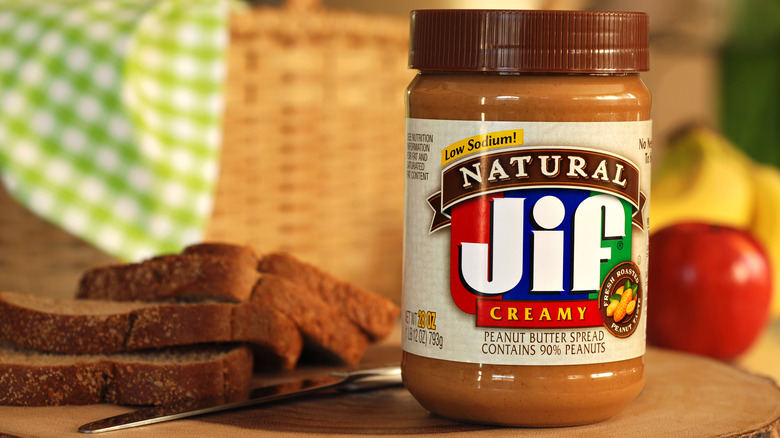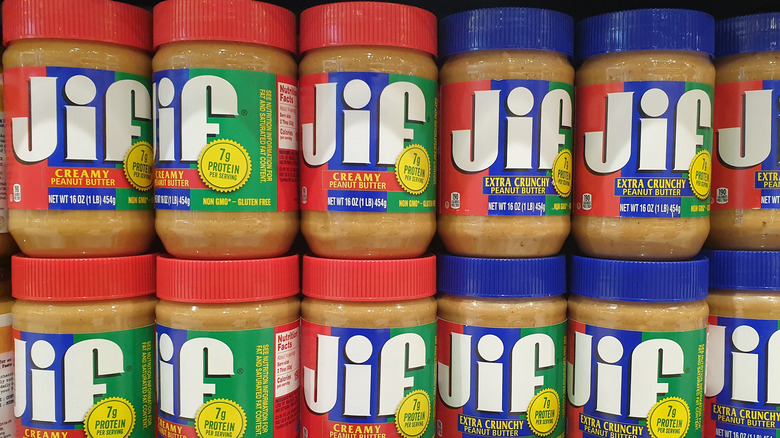Why So Many Brands Are Included In The Jif Peanut Butter Recall
The Food and Drug Administration (FDA) has announced a spate of recalls in recent days. Country Fresh has recalled fruit cups and fruit snack trays. Coblentz Chocolate Company and Cargill, which manufactured items for sale by Wilbur Chocolate, have recalled products. Mary's Harvest Fresh Foods and Taher Inc. have also recalled food products, as have Garden Cut and Albertsons.
At the root of all these recalls is last week's Jif peanut butter recall, which has been linked with an outbreak of salmonella, per the FDA. At least 14 people have become sick, and two have been hospitalized, according to the Center for Disease Control and Prevention (CDC), which has reported cases of salmonella infections occurring in 12 U.S. states. In addition to the reported cases, the CDC believes many more people may have become sick but have not sought medical treatment and recovered naturally. The latter is apparently common with salmonella infections, and the CDC notes that most people recover within one week of becoming ill.
All of the recalls subsequent to Jif have been voluntary, and have occurred because the recalled products contain Jif brand peanut butter. No reported illnesses or health issues have been associated with any of the other recalls, per the individual FDA announcements, although the potential for salmonella infection has been the stated reason for pulling all of these additional products from store shelves.
Status of the active CDC and FDA investigation
An ongoing investigation by the CDC, in coordination with the FDA, has linked the outbreak of salmonella to the J.M. Smucker Company, which makes Jif brand peanut butter, and specifically to a company-owned facility located in Lexington, Kentucky. According to the CDC's food safety alert, 80% of those who were interviewed after becoming sick reported eating a Jif brand peanut butter beforehand.
The CDC has charted a timeline of all people who have gotten sick, with the first reported case logged on February 17, 2022, and the most recent on May 1. Additionally, the CDC performed whole-genome sequencing on the bacterial strain of salmonella — which is known as Salmonella Senftenberg — and believes as a result of their testing that all the people who became sick did so after eating the same food. The CDC observed that the samples showed a close genetic relationship to one another, as well as to a 2010 sample taken at the Lexington, Kentucky facility owned by the J.M. Smucker Company.
The CDC recommends that anyone who may have purchased products from any of the companies who have issued recalls should read the individual announcements carefully in order to ascertain whether these products match the criteria — including lot codes and packaging descriptions — for foods they may have at home. If so, these products should not be eaten, and instead should be discarded or returned to the store where they were purchased.

